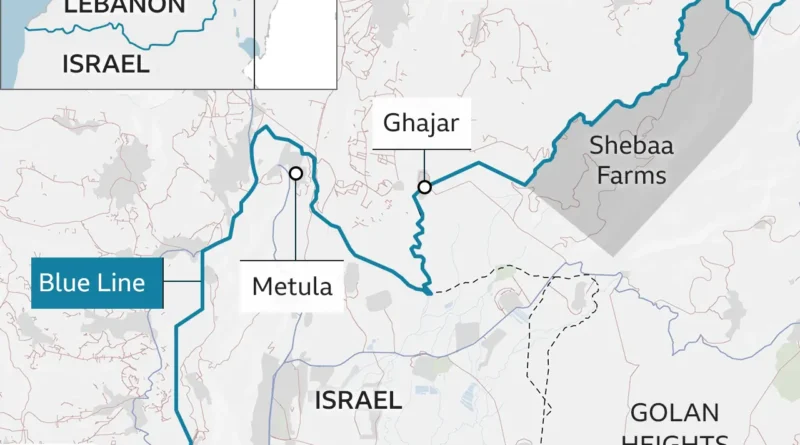Irish Peacekeepers’ Future Role In Lebanon Doubted as UNIFIL Vote Approaches
Today, as Irish peacekeepers navigate through the undulating terrains of southern Lebanon, international diplomats seated in New York delve into discussions about the future of their mission. A vote expected to take place today will consider whether or not to extend the function of the United Nations Interim Force in Lebanon (UNIFIL). This force, which has been a symbol of international hope and a beacon of peace for the conflict-riddled region for more than four decades, today stands on uncertain grounds.
Countless lives have been lost in bloody struggles, invasions, and internal upheavals since the inception of UNIFIL in 1978. Among the soldiers deployed as peacekeepers from Ireland, tragic casualties have reached up to 47 individuals. The question now falls on the role of Irish soldiers and an additional 9,500 global troops who are currently stationed in Lebanon.
The responsibility of extending the mission belongs to the United Nations Security Council, comprising the US, UK, France, China, and Russia. All decisions rest in the hands of these countries, each holding a potent veto power. The world now watches, its eyes fixated on the potential US decision.
Despite expectations that the mandate will continue with France championing the negotiations, concerns remain about the US stance. Speculations foresee that the US might cast this vote as their final approval for an extension, implying that future discussions on UNIFIL’s existence will be pushed to a later time.
The US has hinted that its support in favor of renewal will be contingent on an agreement that UNIFIL concludes by August 2026. According to some sources, the reasoning behind the US stance lies in providing a structured and stepwise withdrawal of troops.
It is expected that representatives from other countries participating in this mission, under the leadership of French diplomats and government officials, will strive to prevent a 2026 withdrawal. This topic will likely occupy the agenda of bilateral meetings that will take place between nations in New York in the ensuing weeks.
The fundamental role assigned to the UNIFIL mission is the monitoring and maintenance of a boundary demarcation known as the Blue Line. Established in 2006, this line marks a disputed withdrawal boundary drawn after an Israeli incursion into Lebanon. Troops from Ireland and other nations actively survey and respond to occasional clashes and other incidents along this line.
In spite of the existing ceasefire agreement, Israel continues to launch air raids on suspected Hezbollah locations. Simultaneously, an unconfirmed increase in power of another military faction, Amal, has been reported by sources in Lebanon.
Amid these developments, the Lebanese government in Beirut teeters on a precarious edge, struggling to assert its authority. In stark contrast, in the southern part of the country, Hezbollah has established a pseudo-state, providing local populace with health services and other necessities.
Whilst the UNIFIL renewal is usually met with certain anxieties, the approval is typically granted. This year, however, a different narrative may play out, the details of which are etched in the proliferating conflicts across the Middle East, including the Israeli-Gaza clash, in addition to multi-front Israeli operations in Lebanon, Syria, and Iran.
The US, recognized for its alliance with Israel, is creating the circumstances for an eventual termination of the UNIFIL mission. Certain Israeli proponents advocate for the removal of UNIFIL from Southern Lebanon, with experts attributing this stance to an intent for a deeper Israeli presence in the North, anticipating this might diminish rocket attacks on Israeli cities.
UNIFIL’s foundational taskforce is to support the Lebanese army in ensuring a complete absence of any armed groups in the south. However, this objective has been largely unsuccessful due to the pervasive activities of Hezbollah in the region. Despite this, based on repeated observations, UNIFIL’s operations have had a net positive impact on local communities.
Allegations from Israel and the US claim that UNIFIL hasn’t adequately assisted the Lebanese army in neutralizing Hezbollah in the region. Hostilities between Hezbollah and Israel intensified notably after an Israeli incursion into Lebanon in October 2024.
Recently, the US ambassador to Turkey, appointed by Trump, has visited both Lebanon and Israel for discussions. Prior to these meetings, a journey was made to assess the effective functioning or shortcomings of the UNIFIL mission.
The Lebanese authorities were apparently informed by the US to disarm Hezbollah before the new year – an imposing challenge. Potentially, Hezbollah possesses a stronger force than the Lebanese Armed Forces, although Israeli airstrikes might have curtailed its strength.
It is known that behind closed doors, Israel has been continuously advocating for the US, a permanent member of the UN Security Council, to discontinue its backing of the UNIFIL mission. The overseas assignment of peacekeeping, while providing career progression, morale, and motivation, stands amid uncertainty and upcoming diplomatic decisions.

